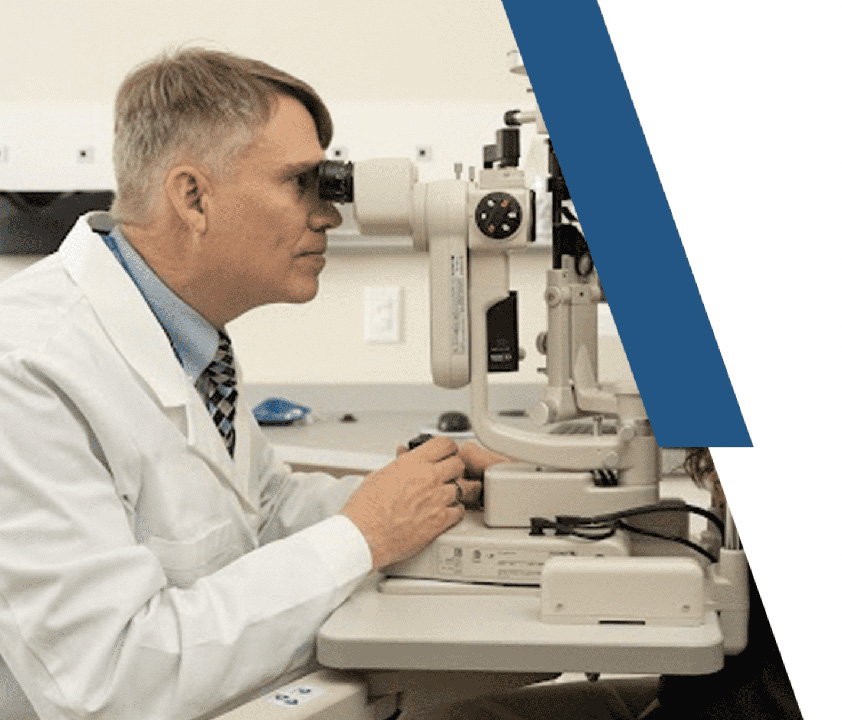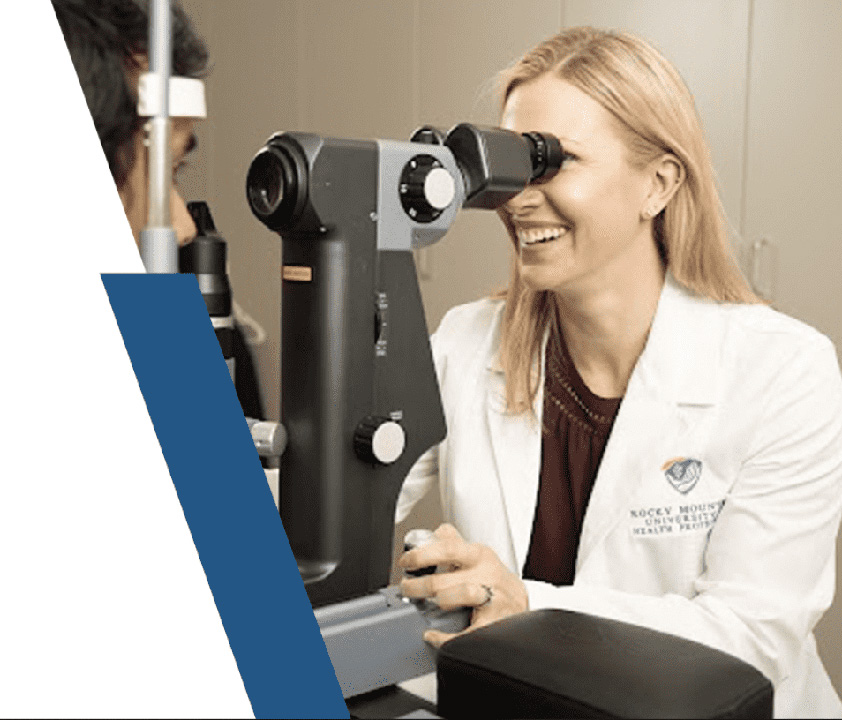Doctors of Optometry (Optometrists & Optometric Physicians)
Optometric Physicians are independent primary eye care doctors who diagnose, treat and manage diseases and disorders related to vision, the visual system, the eye, and the ocular adnexa. As primary care physicians, they are an integral part of the medical team and an entry point to health care for many patients. Optometric Physicians can provide the initial detection, diagnosis, and treatment for many commonly occurring medical conditions. Optometric Physicians co-manage diabetes, hypertension, high cholesterol, and other cardiovascular diseases; consulting and referring to medical specialists when appropriate. In addition to performing comprehensive eye examinations, treating eye diseases (including performing certain ocular surgeries and laser treatments in many states), optometric physicians prescribe eyewear, contact lenses, low vision aids, vision therapy, and medications.
Program Highlights
Clinical Patient Care Program
Our training model focuses on critical thinking skills and delegation of tasks to perform problem-focused examinations. We offer the higher volume of patients that are expected in modern medical practice through a network of locally affiliated teaching clinics and hospitals. Clinical experiences integrate medicine, surgery, and optometry to provide our students with a diverse education.


Medical Skills Training
It has been said that “the eye is the window to the soul”. Many systemic diseases are often first detected during a comprehensive eye exam by a trained eye doctor. We integrate Primary Care and Internal Medicine into core teaching, which includes the diagnosis and treatment of systemic diseases with ocular complications, such as diabetes, hypertension, and high cholesterol. Additional specialty medical training is provided, such as courses in surgery (including lasers), dermatology, radiology, emergency medicine, and psychiatry.
Balanced & Student Friendly Schedule
We have optimized our curriculum to provide a better balance across 11 semesters of training with semester credit loads ranging from 16 to 17 credits in the first three years. Most physician training programs have semester credit loads that are substantially higher than undergraduate education causing students to develop elevated stress levels, high test anxiety, and poor time management strategies. A more balanced and friendly schedule leads to better student performance and better learning retention.


Focus on National Boards
Our curriculum provides a strong basic science foundation in anatomy, physiology, microbiology, immunology, biochemistry, and pharmacology which meets or exceeds the average hours of training at medical schools. Our lecture schedule matches with the National Boards in its emphasis and weight of various subjects. A National Board preparation course is also included as part of the regular class schedule. Our goal is to help our students succeed on National Boards by providing the best opportunity to obtain and retain the knowledge and skills that they acquire during the program.
